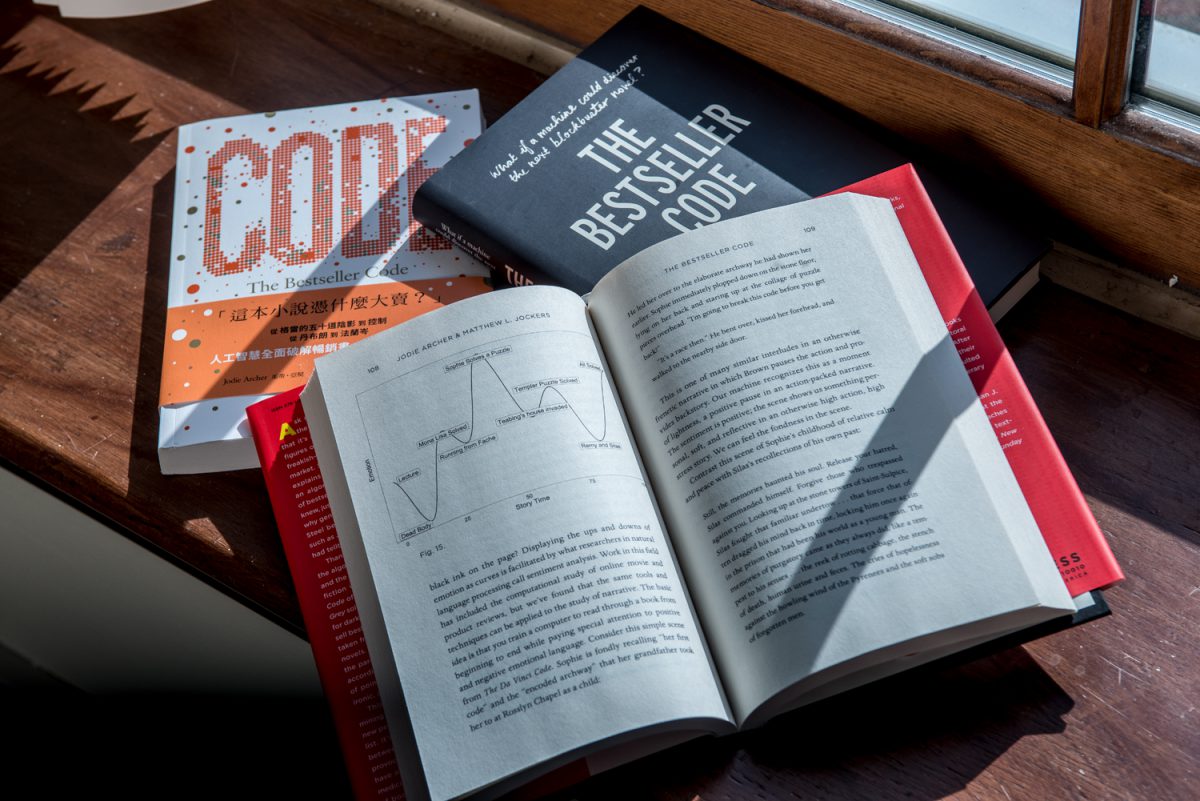Tool Identifies Traits of Literary Blockbusters

“There are three rules for writing a novel. Unfortunately, no one knows what they are.”
— W. Somerset Maugham, novelist and playwright
The popular early 20th-century novelist made this remark long before anyone could imagine programming a room-sized computer to “read” thousands of books and analyze their traits using artificial intelligence.

But that’s just what Nebraska researcher Matt Jockers pulled off with collaborator Jodie Archer, a former acquisitions editor for Penguin Books UK. Their work, a blend of computing and the humanities, produced a predictive algorithm capable of forecasting a manuscript’s potential to hit the best-seller list. The research is summarized in The Bestseller Code, a book that sheds light on key ingredients of literary blockbusters.
“The primary distinguishing feature is human closeness,” said Jockers Susan J. Rosowski Associate Professor of English and associate dean for research and partnerships in the College of Arts and Sciences.
“Closeness” refers not to sexual intimacy, he said, but to the everyday, meaningful interactions between people. Other recurring traits are colloquialisms, active and determined characters, and plots with a steady rhythm of highs and lows.
To develop the algorithm, the researchers harnessed the power of Tusker, a supercomputer at the university’s Holland Computing Center, to analyze 4,800 novels published in the past 30 years, including smash hits like Fifty Shades of Grey, The Da Vinci Code and Gone Girl. Using this data, they identified roughly 2,800 characteristics that a computer can use to differentiate between novels that sink or swim to the top.

From this, the “best-seller-ometer” was born. The algorithm scores books according to their likelihood of becoming a New York Times best-seller. In tests, the model correctly categorized novels 80 percent of the time.
The algorithm could shake up the publishing industry, enabling authors to examine manuscripts for missing features and publishers to rate promising books.
But Jockers and Archer agree the tool cannot substitute for skill, creativity and instinct – prerequisites for superb writing. The aim is not for a computer to script a best-seller, but to develop a valuable tool for writers, readers and publishers.
They recently formed a consulting company, Archer Jockers LLC, and are working with NUtech Ventures, Nebraska’s technology commercialization affiliate, to license the technology.
“We’re keen to see the algorithm leveraged to help writers find a market and to help readers find new books,” Jockers said.
+ Additional content for Tool Identifies Traits of Literary Blockbusters
Supercomputer helps crack the code for bestselling books